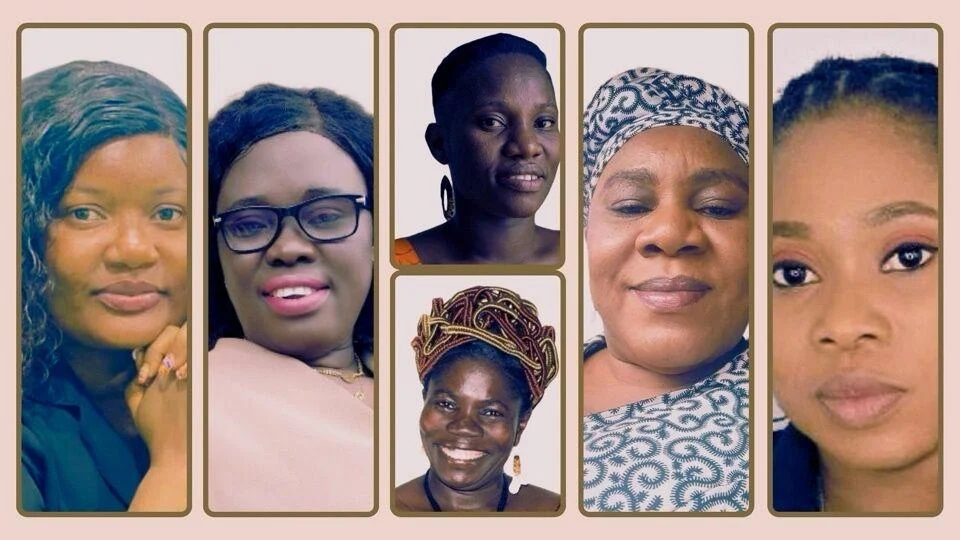
Liberia’s media landscape has made significant strides since the end of the civil war in 2003, with an increase in the number of media outlets and a growing emphasis on freedom of expression.
However, this progress has not translated equally for women as they continue to face multifaceted obstacles hindering their full participation and influence within the media sphere. From low representation, and sexual abuse to threats, women in media continue to face the duding challenges of being a journalist.
While at least two or three women own or manage newspapers nowadays, nearly all women journalists in the country face unequal access to protection resources, and opportunities compared to their male counterparts. In commemoration of World Press Freedom Day, we are showcasing women in Liberia and Nigeria for their impacts on journalism.
Mae Azango a senior Investigative journalist at the FrontPage Africa Newspaper in Liberia, says being a female investigative journalist is tough. “At times, you are at risk of sexual harassment. It becomes more risky, especially when going undercover to do a story.”
In 2012, Mae went into hiding because she reported a story about how girls were graduating from the Sande Society school in Todee after the government of former president Ellen Johnson Sirleaf announced a three-week closure of the Sande bush for a time indefinitely.
The story was published on International Women’s Day that year. Mae was haunted by the traditional leaders who threatened to initiate her into the Sande society if she was caught.
“What puzzled the international community was the fact that the first African Female president did not act when a female reporter’s life was threatened over a woman’s issue. However, after three weeks, the government announced the closure of the Sande bush for a time indefinitely. That was how I left hiding because the traditional people’s attention was drawn to the government who had made the pronouncement instead of me,” Azango said.
Thirteen years later, Mae says the trauma she encountered is still vivid.
Bettie Johnson-Mbayo, the Co-Partner of The Stage Media (TSM), the First Fact-Checking Organization in Liberia, remembers how her husband was nearly denied graduating from medical school at the John F. Kennedy Medical School because she had reported a story about how babies’ mothers were being held hostage because they could not afford their medical bills.
“When the story was reported, the CMO who was the instructor told him he wouldn’t graduate because he should have control and oversight over his wife, specifically on what she reports. My husband and I faked a break-up to enable him to sail through, coupled with prominent people intervening to assist him.”
She says journalism isn’t a surface thing. There is a need to further report because there are new strings every time a new investigation is done. “In making the world a better place as a journalist you need to investigate and that’s why in basic journalism you are told ABC is important. This is the initial step in holding the woeful accountable and bringing untold stories to light.”
Nelly Kalu is a multi-platform investigative journalist from Nigeria, with experience in fact-checking and investigating disinformation. Her experience ranges through radio, television, podcasting, digital media, media consultancy, training, and advocacy.
Media Leadership
The Press Union of Liberia has only had two women leaders: Elizabeth Hoff, president, and Melissa Annan, vice president to former president Peter Quaqua.
Others now serving in media leadership include Helen Sammie Nah, Managing Editor and publisher of Women Voices; Christiana Saywah Jimmy, Managing Editor of The Inquirer Newspaper; and Lisa Tenneh Diasay, president of the Female Journalist Association of Liberia (FEJAL).
FEJAL is still compiling data on the total number of women journalists in Liberia.
Global Celebration of Press Freedom
Every year between May 2 and 4, is celebrated as World Press Freedom Day. But the main celebration is held on May 3. This year’s event will be celebrated in Centro Cultural Gabriela Mistral, Santigo, Chile, under the theme “A Press for the Planet: Journalism in the Face of the Environmental Crisis,” according to UNESCO.
In Liberia, female journalists are on the frontline of reporting on environmental issues. In 2023, Tina S. Mehnpaine, reporter for the Daily Observer newspaper and a colleague at New Narratives Liberia investigated a European Union US$3 million project to fix Monrovia’s growing waste crisis. R. Joyclyn Wea, a reporter at The Stage Media, reported how the Government’s Inaction Brings US$26 million Coastal Defense Project to a standstill, though it was meant to address Coastal flooding.
“It is important to focus more on our environment because people need to be made aware of the grave condition of the environment, and they should use the news media’s influence to push for legislation that would enhance the quality of the environment and other natural resources,” Wea said.
Evelyn Kpadeh Seagbeh, Assistant Climate Change Editor at With New Narratives and correspondent for Radio Deutsche Welle, featured how climate change is impacting farmers.
In Liberia, the Press Union will “commemorate the event with a formal indoor program and climax it with an outdoor program that will include both kickball and football games between the Liberia National Police at the Incivible Park,” a release from the Union said.
The program will be held at the Auditorium of the University of Liberia. PUL calls on members to assemble by 9am at its headquarters on Clay Street to begin the parade on the UL campus.


